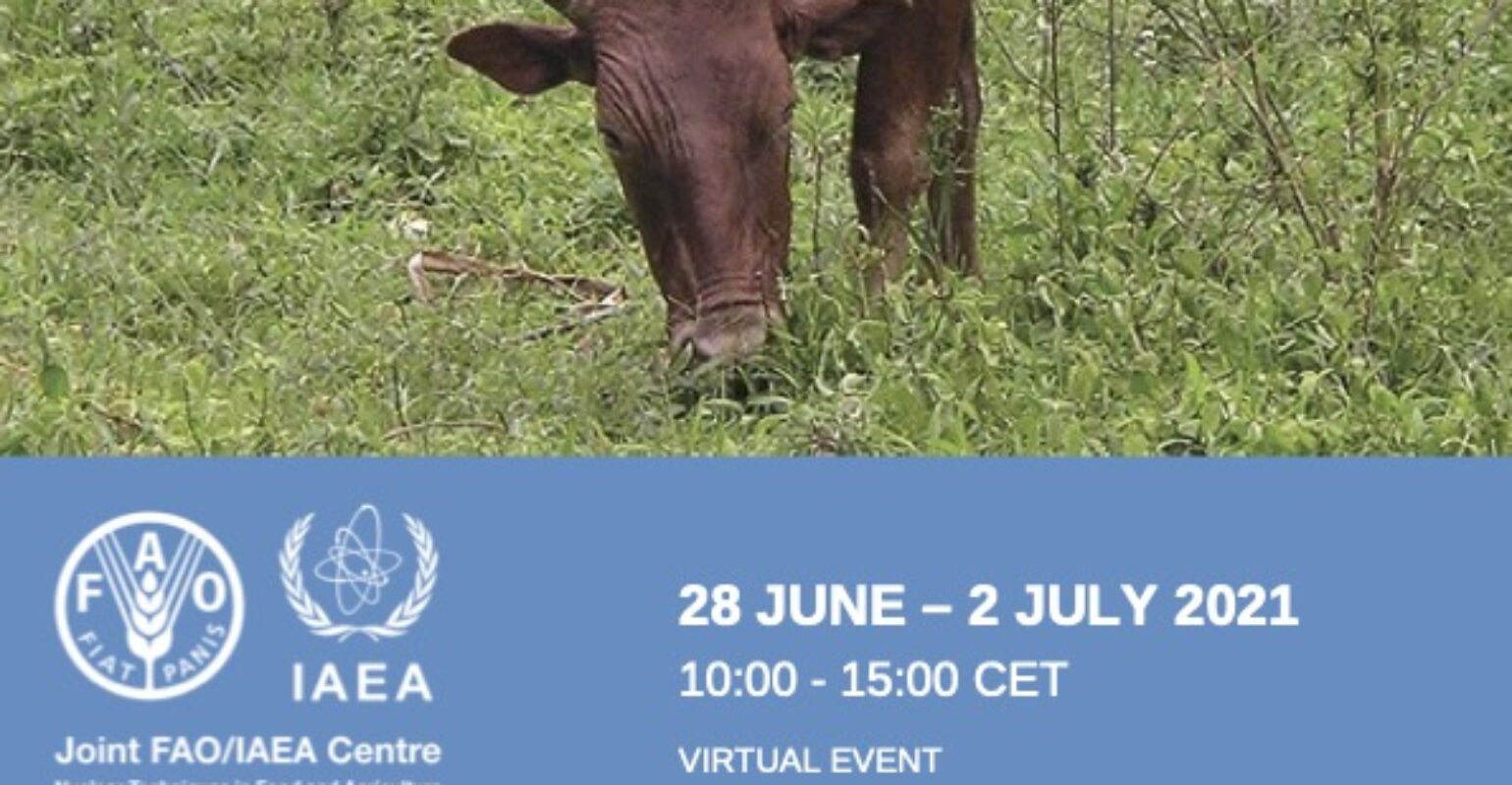The IFIF Chairman, Dr. Daniel Bercovici, was invited to speak at the high-level opening panel of the FAO/IAEA ‘International Symposium on Sustainable Animal Production and Health – Current Status and Way Forward’ a major expert gathering organized by the Joint FAO/IAEA Centre of Nuclear Techniques in Food and Agriculture held on 28 June to 02 July 2021.
Mr. Bercovici highlighted in his remarks that “animal nutrition, through innovation and efficiency, is and has been an essential part of the solution to make the livestock production chain more sustainable.”
The Symposium aimed to draw on lessons learned and current best practices to provide a roadmap for the sustainable improvement of animal production whilst protecting people’s health and the environment. The symposium shared knowledge on modern and novel technologies in animal production and health, and their application to support sustainable livestock production systems and the virtual event attracted over 2000 experts and attendees from more than 150 countries.
The Symposium was opened by Rafael Mariano Grossi, Director General of the IAEA, Dongyu Qu, Director General of the FAO and Monique Eloit, Director General of the OIE.
“It is more apparent today than at any other time, that the care we give livestock and the animals we live with, has a direct impact on each and every one of us,” said Najat Mokhtar, IAEA Deputy Director General and Head of the Department of Nuclear Sciences and Applications.
The opening high-level panel was moderated by Gerrit Viljoen, Head of the IAEA’s Animal Production and Health Section, who explained that “as societies develop, so does their demand for animal products. The FAO projects world meat production to double by 2050, most of which is expected to come from developing countries. Meeting this demand in a way that’s sustainable, moral, and limits the potential for diseases moving between animals and from animals to humans will require innovation and new technologies.” The Panellists included:
- Andrea Gavinelli, European Commission, Belgium
- Ren Wang, China National GeneBank, China
- Daniel Bercovici, International Feed Industry Federation, Germany
- Franck Berthe World Bank, United States of America
- Norbert Nowotny, Joint FAO/IAEA Centre, University of Veterinary Medicine Vienna, Austria
Looking at the big picture, livestock production occupies more than 1 billion people globally, and animal-sourced foods provide 18% of global calories and 39% of protein intake to humans through nutritious food products
Mr. Bercovici explained to delegates that “IFIF works with key stakeholders and partners to advance sustainable animal production systems. Animal nutrition is an essential part of the solution to make the livestock production chain more sustainable and IFIF strives to support the UN Sustainable Development Goals, including ‘Zero Hunger’, ‘Good Health and Wellbeing’, ‘Responsible Consumption and Production’ and ‘Climate Action’.”
The IFIF Chairman called on “stakeholders to support creating an environment to accelerate the innovation transformation of the Animal Nutrition sector, and to support the dialogue between industry regulators and academics to accelerate new technologies. It’s about by working together with all stakeholders in the feed and food chain, including governments.”
“Finally feed safety is also key”, added Mr. Bercovici, “the feed sector is continuously striving for a high level of feed safety to minimize animals’ exposure to microbial, chemical and other contaminants of concern that could enter the food chain through animal source food. IFIF has a global feed safety training programme to support capacity development in low-income countries.”

